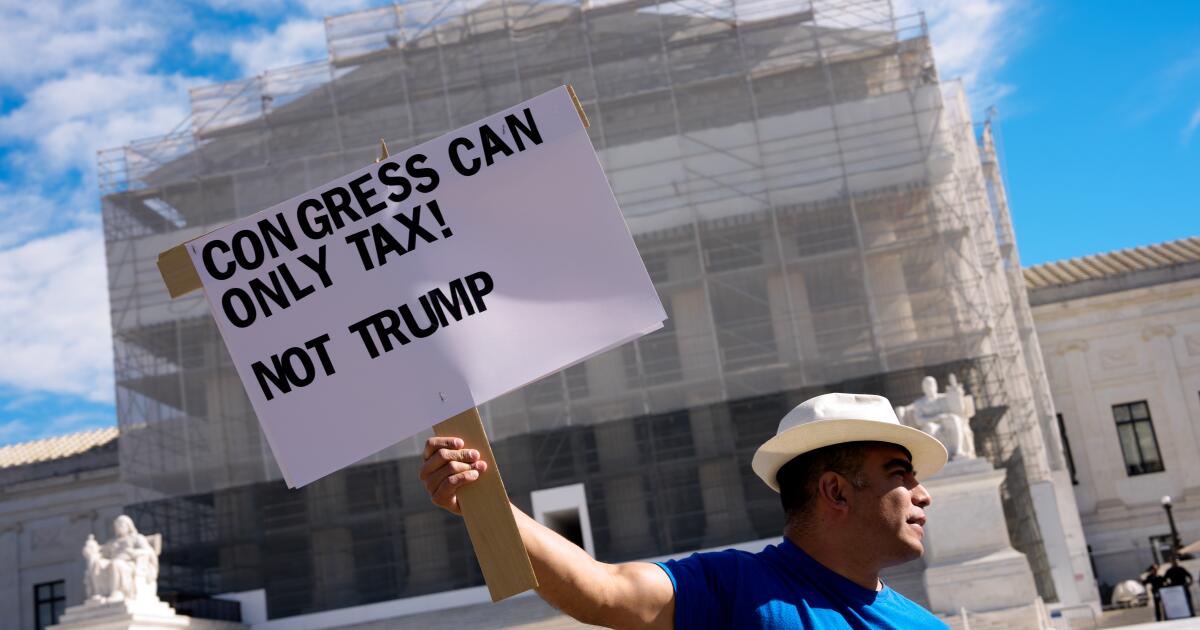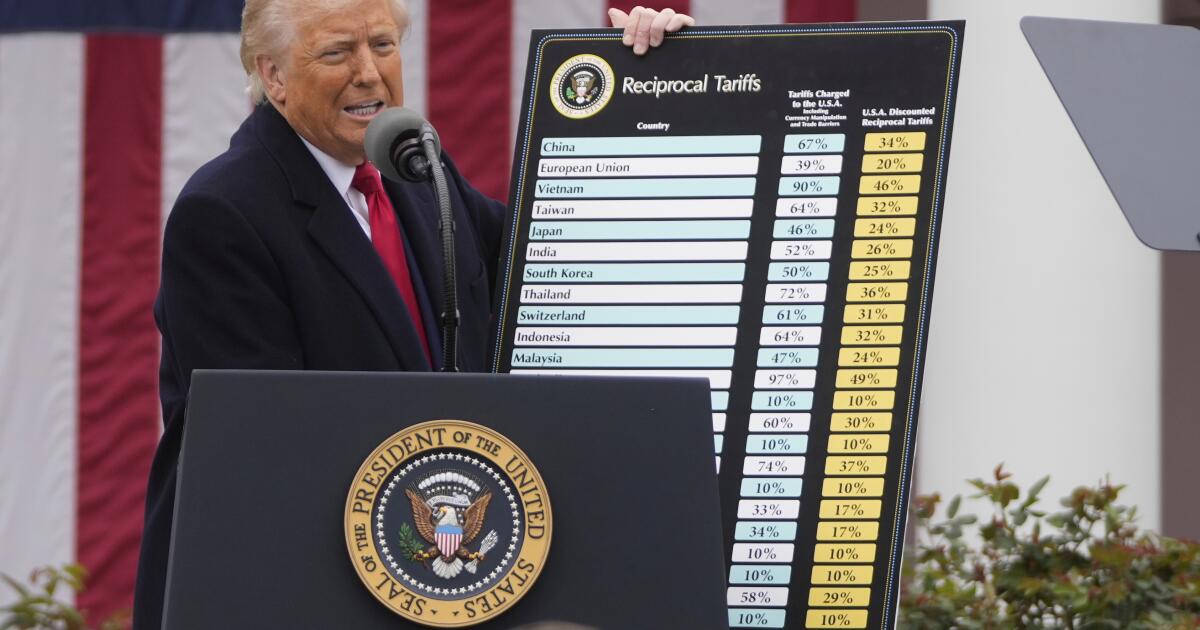Trump’s worldwide tariffs run into sharp skepticism at the Supreme Court
WASHINGTON — President Trump’s signature plan to impose import taxes on products coming from countries around the world ran into sharp skepticism at the Supreme Court on Wednesday.
Most of the justices, conservative and liberal, questioned whether the president acting on his own has the power to set large tariffs as a weapon of international trade.
Instead, they voiced the traditional view that the Constitution gives Congress the power to raise taxes, duties and tariffs.
Trump and his lawyers rely on an emergency powers act adopted on a voice vote by Congress in 1977. That measure authorizes sanctions and embargoes, but does not mention “tariffs, duties” or other means of revenue-raising.
Chief Justice John G. Roberts Jr. said he doubted that law could be read so broadly.
The emergency powers law “had never before been used to justify tariffs,” he told D. John Sauer, Trump’s solicitor general. “No one has argued that it does until this particular case.”
Congress has authorized tariffs in other laws, he said, but not this one. Yet, it is “being used for a power to impose tariffs on any product from any country for — in any amount on any product from any country for — in any amount for any length of time.”
Moreover, the Constitution says Congress has the lead role on taxes and tariffs. “The imposition of taxes on Americans … has always been a core power of Congress,” he said.
The tariffs case heard Wednesday is the first major challenge to Trump’s presidential power to be heard by the court. It is also a test of whether the court’s conservative majority is willing to set legal limits on Trump’s executive authority.
Trump has touted these import taxes as crucial to reviving American manufacturing.
But owners of small businesses, farmers and economists are among the critics who say the on-again, off-again import taxes are disrupting business and damaging the economy.
Two lower courts ruled for small-business owners and said Trump had exceeded his authority.
The Supreme Court agreed to hear the appeal on a fast-track basis with the aim of ruling in a few months.
In defense of the president and his “Liberation Day” tariffs, Trump’s lawyers argued these import duties involve the president’s power over foreign affairs. They are “regulatory tariffs,” not taxes that raise revenue, he said.
Justices Sonia Sotomayor and Elena Kagan disagreed.
“It’s a congressional power, not a presidential power, to tax,” Sotomayor said. “You want to say tariffs are not taxes, but that’s exactly what they are.”
Imposing a tariff “is a taxing power which is delegated by the Constitution to Congress,” Kagan said.
Justice Neil M. Gorsuch may hold the deciding vote, and he said he was wary of upholding broad claims of presidential power that rely on old and vague laws.
The court’s conservative majority, including Gorsuch, struck down several far-reaching Biden administration regulations on climate change and student forgiveness because they were not clearly authorized by Congress.
Both Roberts and Gorsuch said the same theory may apply here. Gorsuch said he was skeptical of the claim that the president had the power to impose taxes based on his belief that the nation faces a global emergency.
In the future, “could the President impose a 50% tariff on gas-powered cars and auto parts to deal with the unusual and extraordinary threat from abroad of climate change?” he asked.
Yes, Sauer replied, “It’s very likely that could be done.”
Congress had the lawmaking power, Gorsuch said, and presidents should not feel free to take away the taxing power “from the people’s representatives.”
Justice Amy Coney Barrett said she was struggling to understand what Congress meant in the emergency powers law when it said the president may “regulate” importation.
She agreed that the law did not mention taxes and tariffs that would raise revenue, but some judges then saw it as allowing the authority to impose duties or tariffs.
Justices Brett M. Kavanaugh and Samuel A. Alito Jr. appeared to be leaning against the challenge to the president’s tariffs.
Kavanaugh pointed to a round of tariffs imposed by President Nixon in 1971, and he said Congress later adopted its emergency powers act without clearly rejecting that authority.
A former White House lawyer, Kavanaugh said it would be unusual for the president to have the full power to bar imports from certain countries, but not the lesser power to impose tariffs.
Since Trump returned to the White House in January, the court’s six Republican appointees have voted repeatedly to set aside orders from judges who had temporarily blocked the president’s policies and initiatives.
Although they have not explained most of their temporary emergency rulings, the conservatives have said the president has broad executive authority over federal agencies and on matters of foreign affairs.
But Wednesday, the justices did not sound split along the usual ideological lines.
The court’s ruling is not likely to be the final word on tariffs, however. Several other past laws allow the president to impose temporary tariffs for reasons of national security.

